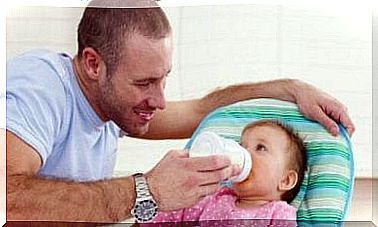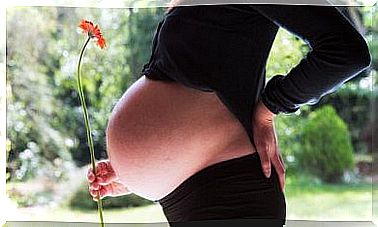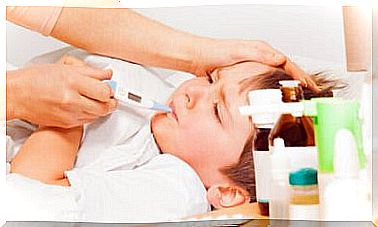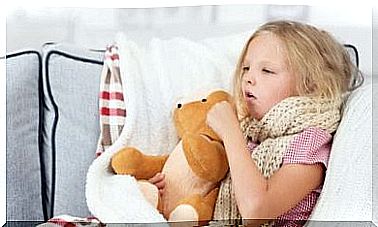Keep These Things Out Of The Reach Of Children
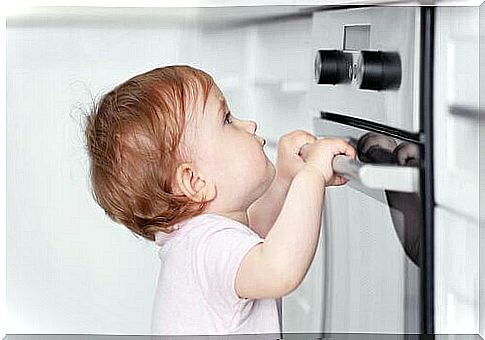
Children usually learn to crawl and container at the age of 8-10 months, after which walking practice begins. A new world opens up for the child when he is finally able to move and explore the world independently. Everything new and wonderful is of interest to the child, and unfortunately such things also include places and things that cause dangerous situations. There are objects and things in every home that need to be kept out of the reach of children, and it is important for parents to start paying special attention to the safety of the home at the latest when the child begins to move independently.
These things must be kept out of the reach of children
- Medicines. While a well-stocked medicine cabinet is necessary in every family with children, it is important to store medicines so that the child cannot access them under any circumstances. At worst, drug-related harm has life-threatening consequences.
- Toxic substances. Many toxic substances are stored in every home. The cleaning cabinet contains a variety of household cleaners, and if the family has a yard, the home may store fertilizers, weed products, and pesticides, for example. Such substances can be even more dangerous to a child than drugs, as there may not be an effective treatment for the poisoning they cause. Therefore, products of this type should always be stored in a locked cabinet or at least on the top shelf of the cabinet.
- Sharp objects and tools. Knives and other sharp objects should always be kept out of the reach of children, as a child whose motor abilities are not yet fully developed will easily injure themselves. The same goes for tools and even many craft tools like hot glue guns and needles. Even if the child does not hurt himself, for example, a hammer can easily do damage to the home furniture.
- Objects causing a choking hazard. At a certain age, the child puts everything he finds in his mouth. This is a way for children to explore and sense the world. Small parts detached from the toy or other object can block the airways and cause suffocation if they get into your mouth. All small objects and items that can be removed from small parts must therefore be kept out of the reach of children.
- Sockets. Sockets are one of the dangers of the home, as they entice the child to push their fingers or small objects into them, which can lead to a light electric shock or, at worst, even a worse-lasting outcome. It is therefore advisable to cover all sockets with the covers provided. Also, power cords should not be left to cruise the floors.
- Batteries. Although the use of heavy metals in coin-cell batteries is declining, battery-powered items should be kept out of the reach of children. In addition to the risk of suffocation if swallowing the battery, electric current from the battery can burn a hole in the esophagus or intestines.
- Glass. A small child does not yet know how to act carefully near glass objects and easily breaks a glass of water left on the edge of a table, for example. At worst, shards of glass cause a wound that requires stitches on a child or other family member.
- Tobacco smoke. Everyone knows that smoking is dangerous for all ages. Already exposure to tobacco smoke affects a child’s growth and development and can lead to serious health problems.
- Phones. Even if the phone does not pose a real danger to the child, it is advisable to keep it out of the reach of the child if it is to remain intact and away from the wrong places. No parent hardly wants their smartphone to end up in a toilet bowl, for example.
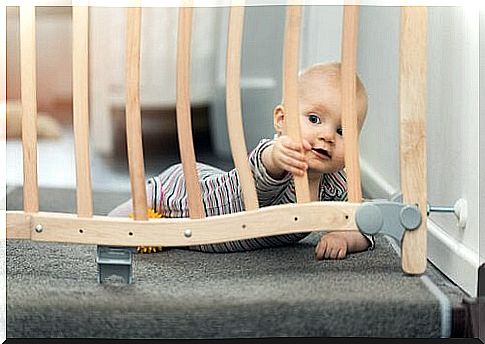
Safe home for children
In addition to keeping the above items out of the reach of children, parents should start thinking about other home safety even when the child is small. By the time a child starts crawling and teasing, he or she is able to move even surprisingly fast and is interested in exploring all corners of the home.
- Covering sharp corners. In addition to properly protecting outlets, sharp corners on tables and other furniture should be covered.
- Prevent access to hazardous areas. It is advisable to install a child lock in ovens and cabinets and boxes where potentially dangerous substances or goods are stored. It is not good for a child to spend time alone, for example in the kitchen, garage or basement.
- Hiding wires. In addition to the risk of electric shock from a damaged cord, any corded device can be dangerous if a child becomes entangled in the cord.
- Fixing furniture. Heavy and large furniture should be carefully secured in place. At the latest when the child begins to learn to stand, he begins to take support from the objects and furniture around him. It is therefore important that all objects that are in danger of falling or falling are attached to a wall or lifted out of the reach of a child.
- Under non-slip mats. If you want to keep carpets on the floors, you should place non-slip barriers under them, which will prevent falls and slips when the child takes his first steps.
- Protection of stairs. It is a good idea to protect both the top and bottom of the stairs with a safety gate to prevent a child from accidentally passing the stairs until they have been taught to walk safely.
- Prevent access to windows. It is not advisable to store furniture or objects under the windows that a child can climb on and thus get to the window. If the windows are easy to open, it is advisable to install separate child locks. Even the ventilation windows must not be left open so that the child can climb out of them.
- Keeping dangerous objects hidden. Plastic bags, batteries, cigarette lighters, matches, coins and all other potentially dangerous objects must always be kept out of the reach of children.
- Taking medicines hidden. Parents should take their own medication so that the child is not witnessing this. This is based on the need for children to imitate what adults do. The fact that a child sees their parents put a pill in their mouth can entice them to do the same.
- Guarding electrical equipment. The child must not be left alone with an oven, stove, washing machine or any other electrical appliance on it. The stove in particular is a place of danger during cooking.
